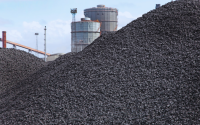3 July 2007
AUSTRALIA'S military will be called on to assist in more disaster and relief missions at home and abroad because of climate change, a policy body says.
A report by the Australian Strategic Policy Institute also says defence forces might end up spending more time protecting borders against climate refugees. The paper suggests it is unlikely the Australian Defence Force (ADF) would be deployed to pressure another nation to change its carbon emissions policies. "It may, however, find itself on more missions that blend disaster relief, development assistance and state-building,'' the report says. At home, soldiers would need to respond to extreme weather such as cyclones, flooding and bushfires. The effects of flooding in Asia and the Pacific caused by rising sea levels could produce large numbers of climate refugees, the report says. "Mass movements of people may require more ADF border protection activities.'' The migration of fish because of global warming might also have implications for defence forces. "There is likely to be increased illegal fishing in Australian waters as climate change exacerbates the impacts of over-fishing in regional fisheries.'' The potential development of nuclear power as a low-emission energy source may require the ADF to secure supplies and facilities, the report says. It could also take part in counter-proliferation missions overseas. The institute says the purchase of military equipment would have to account for different weather and conditions. "Even though climate change impacts may not be evident for many years, the time horizon is very similar to that of major procurement decisions.'' The report calls on the Defence Department to set up a climate change section and examine the implications of global warming for the ADF in the next Defence White Paper. The institute is a government-funded but independent body set up by the Howard Government to explore defence and strategic policy. - AAP
http://www.news.com.au/heraldsun/story/0,21985,22009929-661,00.html






